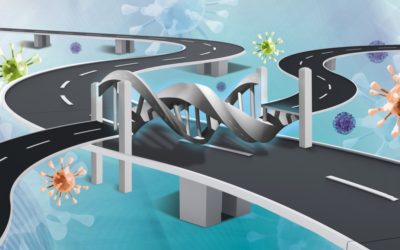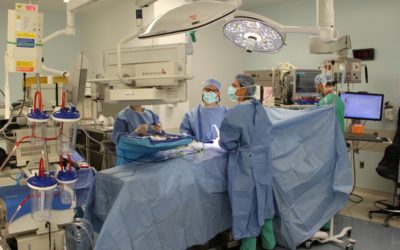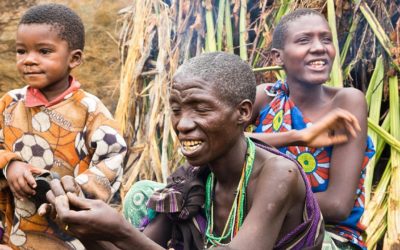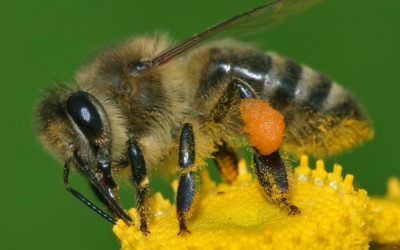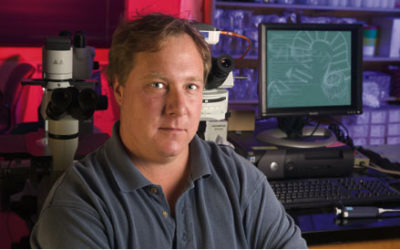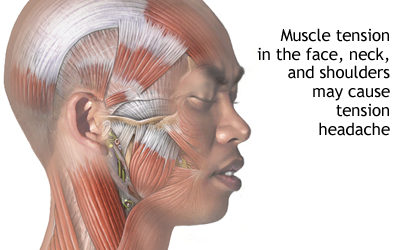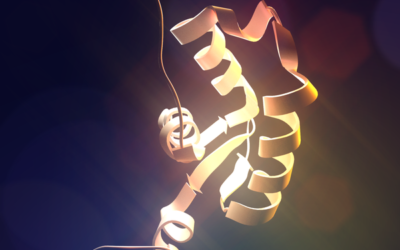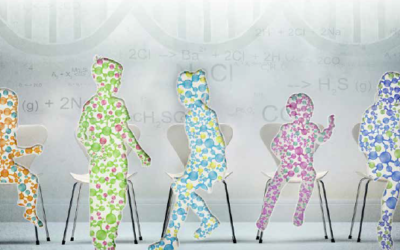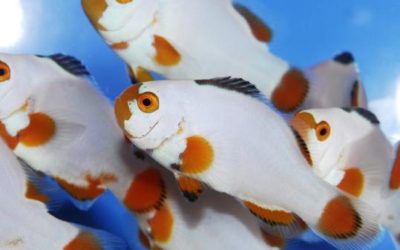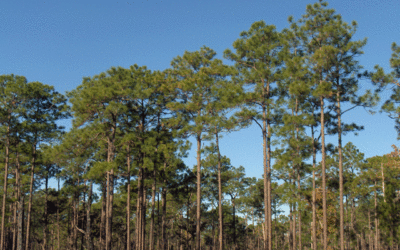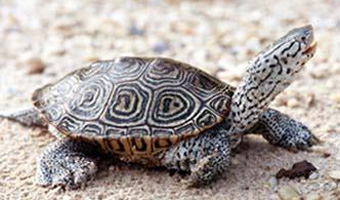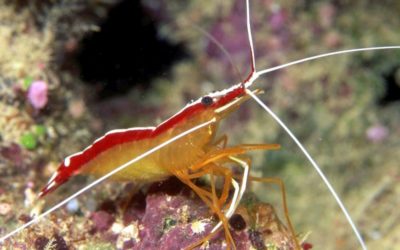Gene Therapy’s Road to Redemption
Pediatrics Nationwide magazine
Fifteen years ago, gene therapy suffered a highly visible fatality, leaving the field in shambles. Now, one team’s efforts at gene therapy for muscular dystrophy suggest the field may finally be on track to deliver on its initial promise.
$1.6 Million Study of Appendicitis Treatment Could Help Children Avoid Surgery
Nationwide Children’s Hospital
In the first study of its kind in the United States, researchers at Nationwide Children’s Hospital will examine the effectiveness of antibiotic therapy alone to treat appendicitis in children, research that could allow patients to avoid a surgery many may not need
Anti-Alzheimer’s gene may have led to the rise of grandparents
Science magazine
Evolutionarily speaking, we are born to make babies. Our bodies—and brains—don’t fall apart until we come to the end of our child-bearing years. So why are grandmothers, who don’t reproduce and who contribute little to food production, still around and still mentally sound?
Biological Sciences
The “Y” Files
Paradigm magazine
The Y chromosome has been called the Rodney Dangerfield of the genomic world. New studies suggest it’s time to give the chromosome a little respect.
When the bee stings
HHMI Bulletin
A new study suggests large protein complexes called inflammasomes play a role a key role in the body’s response to venom from bee stings.
Viruses, Vaccines and the “Unstoppable” Ralph Tripp
UGA Research Magazine
Colleagues describe UGA’s Ralph Tripp as “unstoppable.” And he’s set his sites on finding a cure for respiratory syncytial virus, to which virtually every American child is exposed by the age of 2.
Neurology & Neuroscience
Gene Therapy’s Road to Redemption
Pediatrics Nationwide magazine
Fifteen years ago, gene therapy suffered a highly visible fatality, leaving the field in shambles. Now, one team’s efforts at gene therapy for muscular dystrophy suggest the field may finally be on track to deliver on its initial promise.
Angry Brains
Sarah Lawrence Magazine
People fight because of how they feel, whether angry, afraid, or threatened. Can understanding what’s happening in our brains help us control destructive emotions?
Anti-Alzheimer’s gene may have led to the rise of grandparents
Science magazine
Evolutionarily speaking, we are born to make babies. Our bodies—and brains—don’t fall apart until we come to the end of our child-bearing years. So why are grandmothers, who don’t reproduce and who contribute little to food production, still around and still mentally sound?
Social Sciences
Angry Brains
Sarah Lawrence Magazine
People fight because of how they feel, whether angry, afraid, or threatened. Can understanding what’s happening in our brains help us control destructive emotions?
Early warning signs of violence often overlooked, study finds
Ohio University
Many teachers and counselors often overreact to one-time, physical confrontations between kids and overlook nonviolent behaviors that can cause even more damaging, long-term emotional and social problems, according to a new study.
Antidepressant and stress management cut headache pain by half
Ohio University
Findings from a clinical trial of chronic tension headaches suggest a combination of an antidepressant and stress management therapy can cut the frequency of headaches by as much as half.
Genetics
Gene Therapy’s Road to Redemption
Pediatrics Nationwide magazine
Fifteen years ago, gene therapy suffered a highly visible fatality, leaving the field in shambles. Now, one team’s efforts at gene therapy for muscular dystrophy suggest the field may finally be on track to deliver on its initial promise.
Researchers Identify Genetic Mutation Linked to Congenital Heart Disease
Nationwide Children’s Hospital
A mutation in a gene crucial to normal heart development could play a role in some types of congenital heart disease—the most common birth defect in the U.S. The finding could help narrow the search for genes that contribute to this defect, which affects as many as 40,000 newborns a year.
A knowledge gap
Pediatrics Nationwide magazine
Many pediatricians don’t feel competent to treat patients with genetic disorders, according to a new study that raises questions about how to better prepare physicians for these cases.
Environmental Sciences
Breeding Nemo, Maine lab flourishes
Boston Globe
Soren Hansen’s first marine lab was in the closet of an apartment in Orono, Maine. Years later, his company, Sea & Reef, was one of only a few whose tropical saltwater fish are grown from eggs produced in captivity.
Crowning Glory
Compass Magazine
Once the keystone species–that upon which all the others depend–in the largest single-tree-dominated ecosystem in the United States, longleaf pine now occupies just under 3 million acres, less than 5 percent of its original territory.
New Crab Trap Reduces Turtle Mortality By Almost 100 Percent, Study Finds
Ohio University
A new crab trap designed by Ohio University researchers has been shown to reduce the mortality rate of turtles accidentally caught in recreational traps by almost 100 percent while increasing the number of crabs caught.
Marine Biology
Breeding Nemo, Maine lab flourishes
Boston Globe
Soren Hansen’s first marine lab was in the closet of an apartment in Orono, Maine. Years later, his company, Sea & Reef, was one of only a few whose tropical saltwater fish are grown from eggs produced in captivity.
This Shrimp’s Got Rhythm
Science magazine
Yellow-beaked cleaner shrimp may not sing for their supper, but they’ll dance to get a meal, a new study suggests. The small crustaceans, which dine on parasites that infest large, predatory fish, use the dance to attract customers.
New Crab Trap Reduces Turtle Mortality By Almost 100 Percent, Study Finds
Ohio University
A new crab trap designed by Ohio University researchers has been shown to reduce the mortality rate of turtles accidentally caught in recreational traps by almost 100 percent while increasing the number of crabs caught.
General Science News
Canadian Universities Pick 19 Good Men
Science magazine
When the Canadian government created a $200 million pot to attract up to 20 of the world’s best researchers in four target areas, university administrators had no trouble finding 36 stars that they wanted to hire. Diversity was another matter, however.
Chemical Biologist Is First Woman to Win Lemelson-MIT Prize
Science magazine
Chemical biologist Carolyn Bertozzi is the first woman to receive the Lemelson-MIT Prize.
Drivers of Discovery
Paradigm magazine
A national report says postdoctoral researchers are “indispensable” to the advancement of science, a fact often overlooked by institutions and funding agencies. Now, postdocs are pushing for change. And people are listening.

